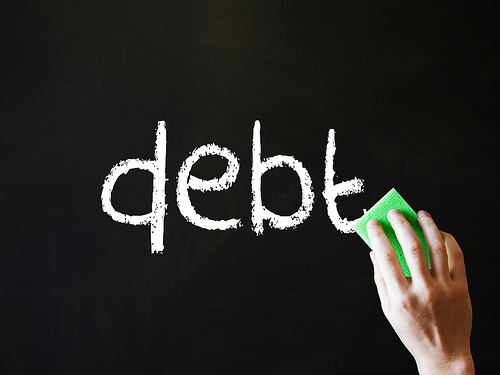Many people between 25-34 feel they must own a house, take expensive vacations, buy a new car and live a lavish life style. This is irrespective of their budget or income level. Often this leads them to end up with unmanageable debt.
Matthew Bowen, a 32-year old San Francisco-based Math teacher was crushed under the burden of a home loan, multiple credit cards with balances, a car loan and a personal loan just a few years ago. It had been only six years since he started his first job but he already had multiple monthly payments like a mortgage, car loan and education loan. He started to use his credit cards to even pay his regular expenses. With huge debt and increasing credit card bills, Mr. Bowen was getting into a deeper pit every month.
However, in the last two years he has managed to bring his debt down to a very manageable level. He has paid off his credit cards, car loan and personal loans. Only a manageable home loan remains. Mr. Bowen is now living well within his budget with decent monthly savings. How did he escape the debt trap? Well, Mr. Bowen sought professional help. With the help of a debt counselor, he devised a strategy to pay off his debt and cut down on unnecessary expenses.
If you are trapped in a similar financial position, consider taking the steps that helped Matthew Bowen escape the debt trap.
Identify the Problem
The solution to any problem begins with identification it. Most people don’t like to admit that they are in over their head. How do you identify if you need help? Start by looking at your income-expense ratio. If your monthly loan payments are eating up more than 40% of your monthly income, it is a red flag.
You may argue that good debts, loans that will help you built assets, are not all bad. But the excess of good debt is also a bad thing. Make sure that payments on your non-mortgage loans and discretionary spending eat no more than 25% of your monthly income.
A debt counselor suggests strategies that can sometimes be painful to your current lifestyle. Don’t expect them to wave a magic wand to make your debt disappear. You will need to be disciplined, you will have to stick to a plan, just like Mr. Bowen did. But once you are debt-free, you will realize how amazing it is to not have the constant stress of bills on you head.
Road to Debt Nirvana
Sit down with your debt counselor (or alone if you prefer) to prepare a list of your outstanding debts. Financial planners suggest that you should pay off the high interest loans first. Credit card debts are usually the most expensive, with interest rates of 18%-20% a year. Pay as much extra as possible towards the principal every month. Skip that latte in the morning! Mr. Bowen used this method to get rid of his credit card loans.
Once you have paid off your credit card bills, your next target should be personal loans. They should be paid off as early as possible. Make it a goal to not borrow any additional money. Do without that new shirt this month! However, there are certain debts such as home loan and education loan that have tax benefits. Though some experts say there is no pressure to eliminate tax advantageous loans at the earliest, try to pay a little extra if you can. It’s great to see that loan go down faster and pay a lot less interest!
But where will the money come from?
So you know what your debts are but now you have to PAY OFF the loans, which is much harder than talking about it. Most people including Mr. Bowen (and you after you’ve been working for a few years) have certain investments and other savings. As the stock market has recently been doing well it may be a good time to take some of the gains and pay of some of your debt.
But be cautious in liquidating your investments. You should first sell investments that yield lower returns than the interest rate you are paying. If you are barely earning any interest on your savings account or CD take the money and pay off the credit card. Make sure you still keep some rainy day funds for the unforeseen emergency. Mr. Bowen used some of his savings account funds to knock down a part of his debt. Finally, you have to compromise on your monthly expenses. Cutting down your debt will require some lifestyle changes like cutting out the daily Starbucks runs, eating out less, getting a smaller car or going with public transportation if it works. If you are in really deep, consider sharing an apartment or move back in with family for a while. While doing this make sure you don’t cut out any essentials and give yourself and your family a treat once in a while.
Be disciplined and persevere in your goal. It may seem tough at times but you’ll start seeing progress within a few months. You are also advised to consult a debt counselor.

